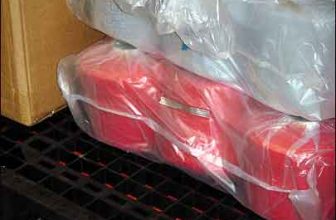
Production and use of RFID technology in commercial vehicles
[ad_1]
In the concept of ordinary people, the production of commercial vehicles is very different from the production of cars. There should not be so many individual requirements. The requirements for flexible manufacturing are relatively low. Basically, the standard models with standard configuration are mainly used. But in fact, users of commercial vehicles, considering their competitive advantages in the fierce market competition, will also put forward various personalized requirements for the commercial vehicles they order, and commercial vehicle manufacturers will try their best to satisfy them. With such a requirement, the difference between commercial vehicle production and car production is not much, but the order batch size is different. At present, DAF, the largest commercial vehicle manufacturer in Europe, claims that every car they produce is a unique product customized according to customer requirements. It can be seen that personalized customization has also become a trend in commercial vehicle production.

In the past few years, the state issued a policy of compulsory recall of automobile products. In order to adapt to the changes in this environment, even companies that adopt mass production organization methods must achieve the traceability of individual products. Therefore, the demand for information collection in the production process has increased significantly. The information collection technology in the production process has an increasing influence on production efficiency and production organization.
Based on this background, the application of RFID technology in commercial vehicle manufacturers is very similar to its application in car manufacturers, mainly in the following aspects:
Production Process Management (WIP)
The use of RFID technology can take production progress information more automatically, in real time, and reliably, making the production process and progress more visible, reducing the dependence on manual information collection, reducing costs, and reducing errors. Based on the above-mentioned more automatic and accurate information collection, commercial vehicle manufacturers can further improve their lean production management level and gain a competitive advantage.
The use of RFID technology to improve production management can be reflected in many aspects, such as:
Cooperating with the automated production line, the automatic selection of the production path of the work-in-progress-products with different configurations in the production process often need to go through different paths. At the branch point of the path, judge and select by identifying the work-in-process. Using RFID technology to identify the work-in-process is the best solution.
Automatic verification of work-in-process and assembly materials–Individualized production requires extremely high coordination between production and material distribution. Assembly materials must be delivered to the correct station at the correct time and in the correct order. However, in actual production, errors are inevitable. Once the wrong materials are assembled on the work-in-process, a series of costs for error checking and correction will be incurred, and it may even affect the on-time delivery of products and customer satisfaction. . RFID technology is often used to change error checking and error correction to error prevention to reduce or avoid these unnecessary costs. Using RFID technology to identify the work-in-progress and the current materials separately, and compare and judge by the information system, which can effectively prevent errors while reducing the actions of operators that do not produce value added, and avoid possible errors caused by manual intervention.
The production line automatically pulls materials-lean production requires pull-type material replenishment, which requires the materials department to accurately and timely grasp the consumption of materials next to the production line. Through more automated RFID technology, the production process can be further visualized, which is conducive to the material department to more accurately grasp the production dynamics, and under the premise of ensuring material replenishment, it can reduce the safety inventory and reduce the capital occupation.
Product traceability information collection-The collection of product genealogy information is the basis for product recalls. This information must be collected during the production process to be the most accurate. One-to-one automatic collection of this information can be realized through the RFID tags on the materials and the products, which not only reduces the redundant actions of the operators, and improves the efficiency; it also eliminates the errors that may be caused by manual intervention and improves the quality of the data.
Internal supply chain
The internal supply chain is an important part of the supply chain of automobile manufacturers. The operation level of the internal supply chain directly affects whether the production can be coordinated, balanced, and efficiently carried out. Therefore, the internal supply chain (including spare parts warehouse to material preparation) The degree of visualization of the parts distribution process from time to time to the production line and the material handling process between each production process contains great economic value.
Using RFID technology, by adding RFID tags to the material itself, such as the engine, front and rear axles, frame and other important parts, or material handling containers, such as bins, racks, etc., to install RFID tags in the entire internal supply chain. Setting up RFID reading portals at all important checkpoints or deploying RFID reading and writing equipment on forklifts for material handling can effectively improve the visibility of the internal supply chain and monitor the movement and distribution of materials in the internal supply chain in real time. The application of production process management can effectively reduce the inventory level of material inventory under the premise of ensuring the supply of production materials, and create benefits for the enterprise. ,
TNT, the company responsible for the third-party logistics business of auto parts and accessories in Europe, has successfully used Intermec’s RFID technology and products to effectively improve the operational performance of delivering the correct materials to the correct workstations at the correct time and in the correct order. , And at the same time significantly reduce the cost of logistics operations.
Equipment maintenance
Automobile production companies have a large variety of automated production equipment, and the operating status of these production equipment determines whether production can proceed normally. Once some key equipment fails, it will force the company to temporarily suspend production to eliminate it, which will cause significant losses to the company. How to effectively track these key equipment, ensure that they are adequately maintained at the corresponding time, detect and eliminate potential accidents in advance, and ensure their operating status is an important work content for automobile manufacturers.
The use of RFID technology to automatically track key equipment, especially key equipment directly related to production, and eliminate manual judgment and intervention can further ensure that these equipment are fully maintained, reduce losses and reduce costs.
The American Dailem Chrysler Company installed RFID tags on the brackets of its pickup truck production line to automatically track the running status and maintenance technical history of these brackets, and achieved huge economic benefits. The cost savings in 4 months was as high as 100 Ten thousand U.S. dollars to recover all system investment, and the input-output rate is as high as 345%.
Commercial vehicle use
For commercial vehicle users, RFID technology is equally useful. Judging from a large number of practical application cases at home and abroad, it mainly includes the following aspects:
Yard Management of Logistics Center
Install RFID tags on transport vehicles and trailers, and write relevant information about the vehicles in them. When the vehicle arrives at the gate of the logistics center, the read-write device located at the gate reads and sends the information of the vehicle to the system. The system instructs the parking location of the vehicle in accordance with the work plan, and at the same time notifies the relevant personnel to prepare for the receipt in advance. When the trailer needs to be parked in the cargo yard, the RFID tag on the trailer can quickly confirm the parking position of the trailer. When a trailer needs to be loaded and unloaded, the staff can directly find and confirm the trailer that needs to be operated according to the instructions of the system. In this way, the empty waiting time in the operation process can be effectively reduced, the operation efficiency is improved, and the cargo turnover can be accelerated.
Permission management for working vehicles
In many places, such as ports and airports, permit management is required for operating vehicles entering and exiting them. Vehicles without permits are not allowed to enter these areas. However, there is a natural contradiction between the strict pass inspection and the passing efficiency of the crossing. At the same time, manual inspection will inevitably produce errors and management loopholes.
Using UHF band RFID technology to be able to read from a long distance, using RFID tags as electronic passes can effectively solve this problem. It not only ensures the passage efficiency of the crossing, but also plugs the possible management loopholes and strictly manages. This application has become a relatively general management mode in many ports and similar occasions in our country. Unless more vehicle access channels are added, it will not be possible to guarantee the timely assembly and evacuation of goods in the port area. Suppress Hong Kong”. RFID technology has saved a lot of investment for these ports.
Measurement management of large quantities of bulk cargo
Ports, power plants, coal mines, steel mills and other similar enterprises have a large number of bulk cargoes in and out of the year. For example, bulk cargoes sent from ports, coal consumed by power plants, ore and coke consumed by steel mills, etc. The usual management mode is Subtract the weighed weight when the vehicle enters and exits, and use it as the actual weight of the goods arriving or dispatched. In this way, it is difficult to avoid management loopholes, and the phenomenon of leaking and dripping is very serious, causing great economic losses to the enterprise.
UHF RFID technology is also used to closely integrate the RFID system with the electronic measurement system. The weight data obtained by the electronic scale is encrypted and written into the RFID tag, and the RFID tag is used as the carrier of the data. All processing completely eliminates the possibility of manual intervention. Sex, to a certain extent, plug the management loopholes. In addition, reading points can be set at the main divergent intersections of the internal roads of the enterprise to monitor the path of related vehicles, which can prevent other forms of cheating.
[ad_2]




